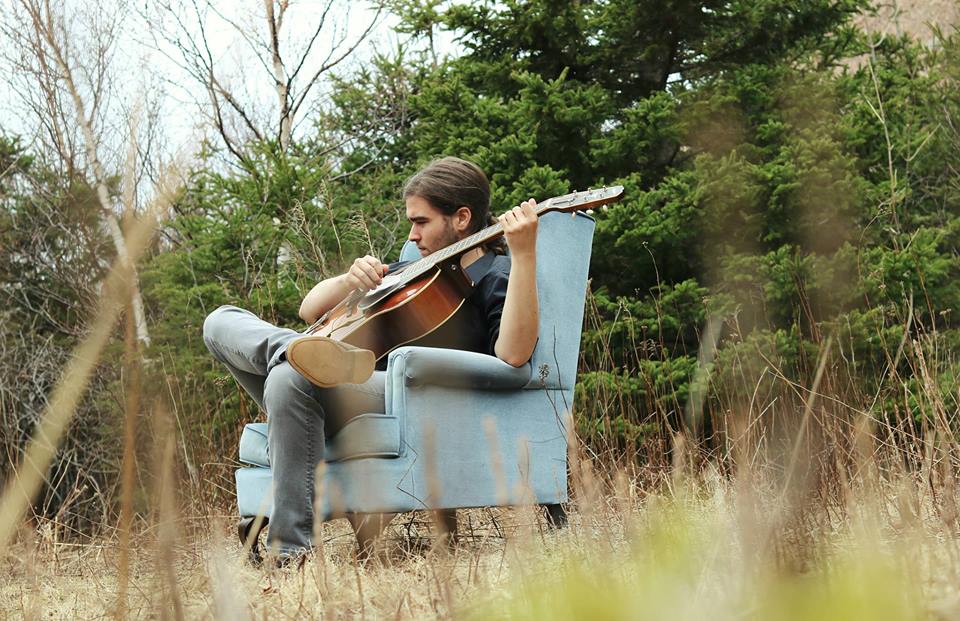Entertainment
East Coast awards pull Indigenous artist nominee amid questions about Metis ties

Cape Breton guitarist Maxim Cormier (Photo: Maxim Cormier/Facebook)
HALIFAX — A Metis chief is calling for the reversal of the East Coast Music Association’s decision to pull a Nova Scotia nominee from consideration for an Indigenous artist award amid questions about his heritage.
Cape Breton guitarist Maxim Cormier, who identifies as being of Acadian and Metis heritage, has been withdrawn from the Indigenous artist of the year category.
Karole Dumont, chief of the Council of the First Metis People of Canada, said there is no question that Cormier is Aboriginal, and to suggest otherwise is an affront to Metis identity.
“(Aboriginal people) are the only, only group of people in Canada who constantly have to prove who we are,” said Dumont. “We’re not going to take it laying down. This has been going on for quite a while, and it’s part of a much bigger dispute … at the national level.”
Dean Stairs, chair of the East Coast Music Association’s board of directors, called the situation “regrettable.” He said the decision, which was announced late last week, was made based on research and in consultation with government officials and community stakeholders.
“Though we do not question how someone identifies their own ancestry and personal identity, we also have to …. be respectful of the Indigenous peoples of Atlantic Canada,” Stairs said in a news release. “We must ensure that all nominees for the Indigenous Artist of the Year award have met the true intent of the criteria.”
Neither Cormier nor the community he belongs to, the Highlands Metis Nation Association, are recognized as members of Canada’s Aboriginal Peoples under constitutional law, according to the board.
But Dumont said the awards association is wrong about both the musician and the Highlands Metis, which is one of the council’s treaty partners.
She said the council has determined that Cormier’s lineage can be traced back to Metis ancestors on both sides, and based on this evidence, the council is consulting with lawyers about challenging the East Coast Music Association’s withdrawal of his nomination in court.
A spokesperson for East Coast Music Association declined to provide further comment. Representatives for Cormier did not return a request for an interview.
The chief of the Highlands Metis Nation Association, which was founded two years ago, said he was “disappointed” in the organization’s decision, but declined to comment on the association’s legal status.
A spokesperson for Indigenous and Northern Affairs Canada said the government does not maintain a list of Metis individuals or groups.
The Metis population in Atlantic Canada increased by nearly 125 per cent between 2006 and 2016, according to Stastics Canada, leading some academics to question the legitimacy of many people’s claims to Metis ancestry.
“This is about supporting Indigenous sovereignty and self-determination,” Saint Mary’s University sociology professor Darryl Leroux tweeted Monday. “It’s fundamentally a political issue, not one that is simply about individual self-identification. I have many of the same ancestors as Acadians who are now calling themselves ‘Acadian-Metis.”’
After centuries of discrimination, Dumont said many people of Metis heritage have only recently come to take pride in their identity. She acknowledged there have always been a handful of “charlatans” making fraudulent ancestry claims, but insists that Cormier is not among them.
“He shares the same lineage and same blood as people who are currently registered as status Indians,” she said.
Mi’kmaq activist Cheryl Maloney said many groups claiming Metis ties have cropped up in the Atlantic Canada in recent years, and in some cases, opposed the Mi’kmaq’s efforts to preside over their ancestral territory.
Indigenous artists make up a tiny cohort of the region’s relatively small music industry, Maloney said.
“We need to be proud of the achievements of our people and for somebody to come in and they’re not part of the Indigenous community, that leaves us without those role models,” she said.
“It’s hard to watch if you’re a part of a real Indigenous community, a real struggle, a real identity to the land … when someone walks in and takes what’s ours.”
The East Coast Music Awards, a five-day celebration of music showcasing hundreds of Atlantic artists, is set to take place in Halifax in May.





















